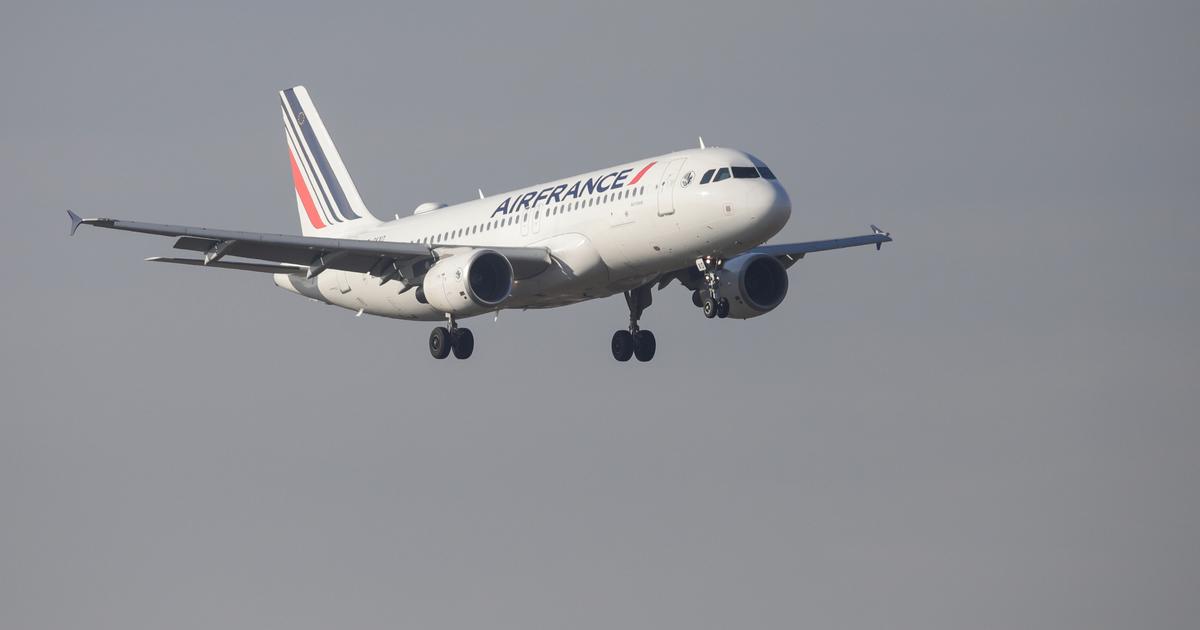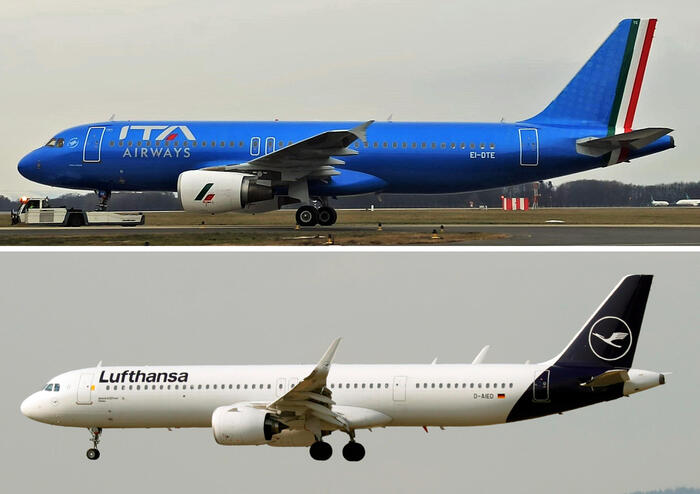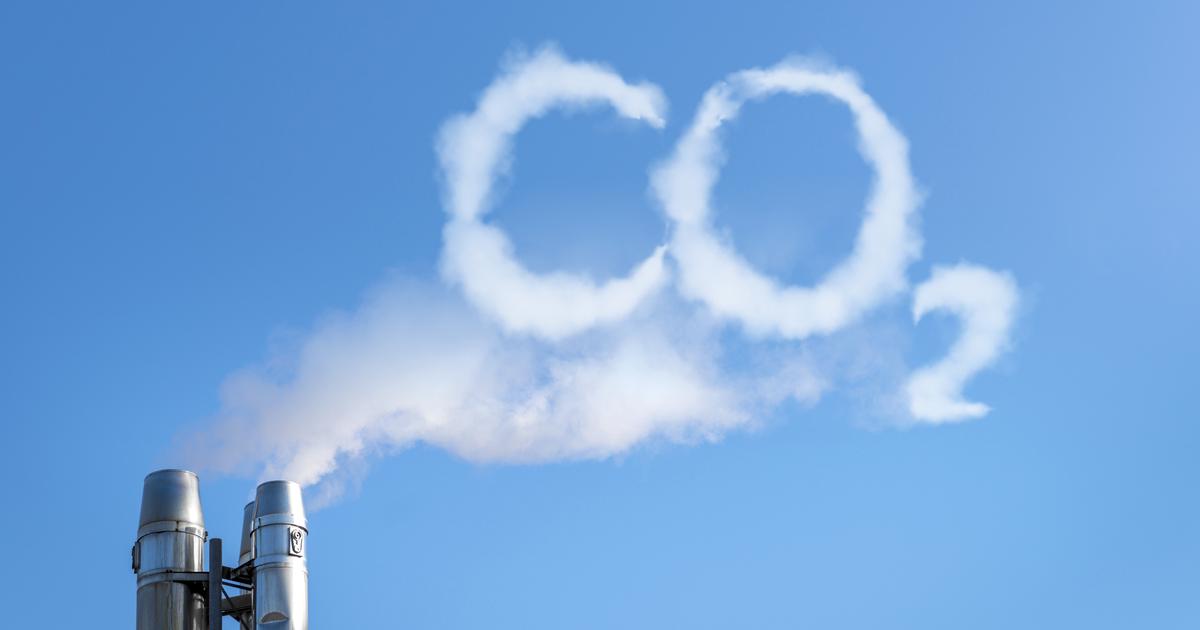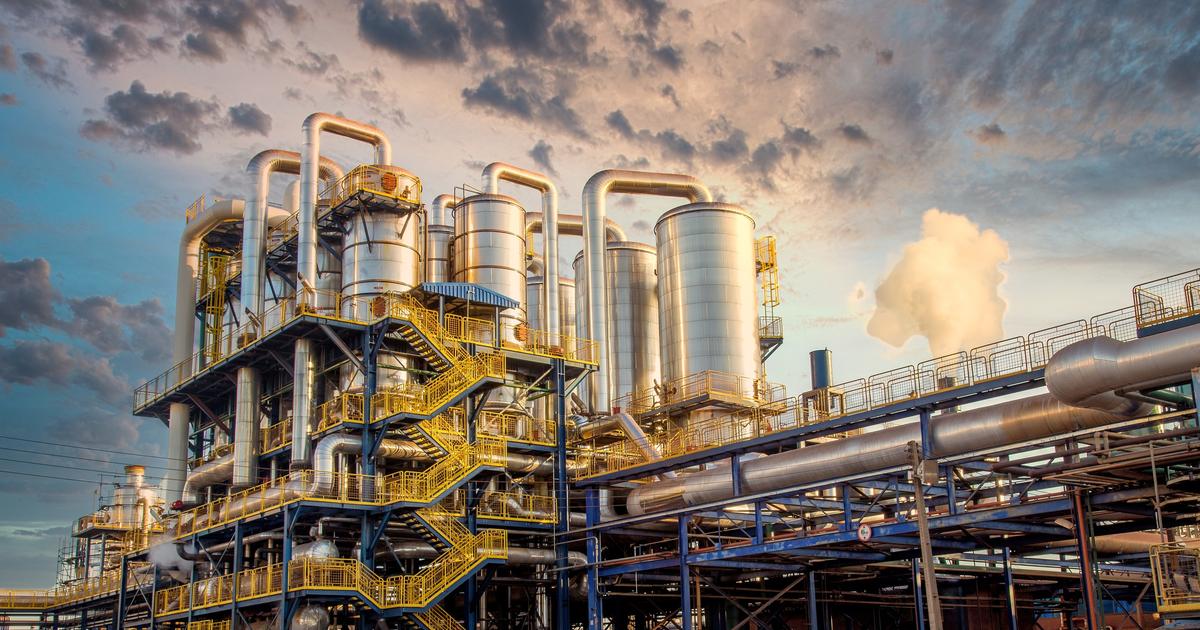An Air France plane partially repainted in green.
The image marked the spirits.
Earlier this month, Greenpeace activists entered the tarmac at Roissy airport to denounce the government's “greenwashing” on air travel.
The objective of this punching operation: to demand a reduction in traffic to reduce CO2 emissions, and therefore global warming.
While the “Climate and Resilience” bill returns to the National Assembly on Monday, the NGOs Carbon Market Watch and Transport & Environment (T&E), which brings together around fifty associations, are putting a layer back.
In a report that we are unveiling to you exclusively, they deliver the data to which they had access on the international emissions of the major European companies ... before the Covid-19 nailed the devices to the ground.
On the first three steps of the podium of the most polluting aircraft manufacturers are Lufthansa (19.11 million tonnes of CO2 emitted in 2019), British Airways (18.38) and Air France (14.39).
Far ahead of the small Swedish company SAS (3.78 million tonnes) or the Portuguese one, TAP, (3.75 million tonnes).
This is because the three behemoths of European aviation are very present internationally and most of their emissions are linked to their long-haul flights.
Compensate financially
“The problem is that these long distance links are not subject, like domestic or intra-European flights, to the carbon emission market system.
Set up within the EU, it obliges companies to financially compensate each tonne of CO2 emitted by the aircraft, ”explains Matteo Mirolo, responsible for aviation policies at T&E.
"Airlines should be made to pay for the emissions of all their flights," argues Andrew Murphy, head of aviation at T&E.
READ ALSO>
Boeing promises petrol-free airplanes by 2030
A carbon offset system for domestic flights extended to international flights is already on the table.
"Upon exiting the Covid, any company that exceeds the level of CO2 emissions in 2019 will have to pay financial compensation," said Vincent Etchebeher, director of sustainable development at Air France.
The French company also wishes to recall the ambition of its investments in ecological matters.
“We are committed to reducing our emissions in absolute terms by half between 2005 and 2050 and we have already reduced them by 6% between 2005 and 2019,” indicates Vincent Etchebehere.
We are also going to halve our CO2 emissions in mainland France by 2024 compared to 2019. ”
Less greedy devices
To do this, the company has already ordered 38 long-haul A350 aircraft, reputed to consume less kerosene, and 60 A220 aircraft for short and medium trips.
New generation devices that emit on average 25% less CO2.
But when will we see a real green plane?
"There is a lot of talk about hydrogen aircraft and electric aircraft, but before these technologies are developed and marketed, companies should focus on alternative fuels such as synthetic kerosene", underlines Matteo Mirolo.
An attractive fuel oil, because it emits much less CO2 during production.
But who says miracle product says expensive and rare product.
"Today, it is little used by airlines, because it costs three to ten times more expensive than conventional kerosene and is not produced in large quantities", notes the director of sustainable development of Air France.
Morning essentials newsletter
A tour of the news to start the day
Subscribe to the newsletterAll newsletters
So, in the meantime, the companies are hunting down waste.
“For example, we optimize the trajectories of our planes to use less fuel and we use lighter materials inside the aircraft,” explains Vincent Etchebehere.
"The companies are all working to reduce their fuel consumption, because this allows them to emit less CO2 and above all to save money," underlines Isabelle Laplace, researcher in ecological transition of transport at the National School of Civil Aviation.
Between carbon offset systems, biofuels, reduction of consumption during flights and new technologies, there is not a single answer that emerges, but a combination of multiple solutions to put in place.
"









